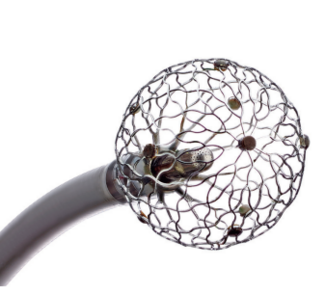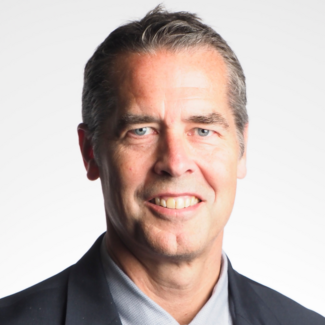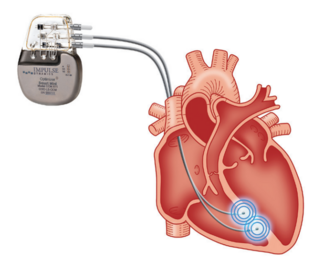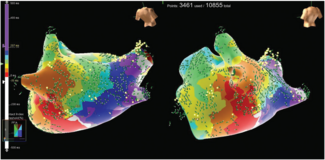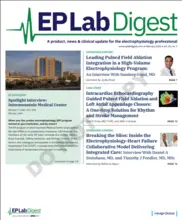SADS Foundation Update: New Leadership, Breakthroughs in Heart Rhythm Research, and Expanded Support for Families
© 2025 HMP Global. All Rights Reserved.
Any views and opinions expressed are those of the author(s) and/or participants and do not necessarily reflect the views, policy, or position of EP Lab Digest or HMP Global, their employees, and affiliates.
EP LAB DIGEST. 2025;25(9):12-13.
Walker Frahm, CEO; Genevie Echols, RCIS, Family Support, Advocacy, and Research Director; and Anna Goodson, Communications Director, SADS Foundation
As the premier nonprofit organization for inherited heart rhythm conditions—including long QT syndrome (LQTS), catecholaminergic polymorphic ventricular tachycardia (CPVT), Brugada syndrome (BrS), arrhythmogenic cardiomyopathy (ACM), Wolff-Parkinson-White (WPW), Timothy syndrome, and short QT syndrome (SQTS)—the Sudden Arrhythmia Death Syndromes (SADS) Foundation leads the way in education, research, and advocacy for families with inherited heart rhythm conditions.
With the commitment of researchers, medical professionals, and families, our vision is to prevent the death of young people through family support, community awareness, cutting-edge medical intervention, and innovative research. The SADS Foundation empowers families with resources that help them live and thrive with their condition.
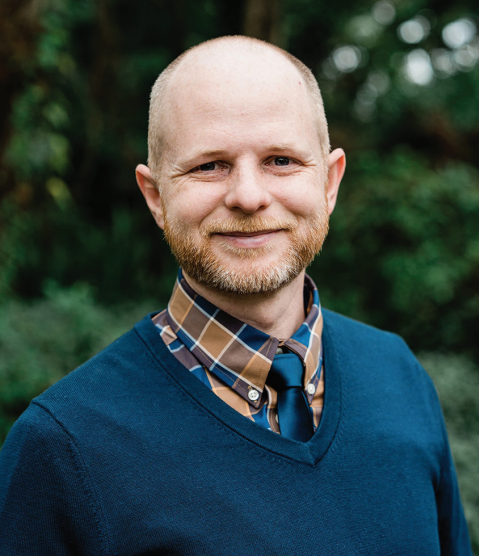
Welcoming Walker Frahm as Chief Executive Officer (CEO)
The SADS Foundation has appointed Walker Frahm as the new CEO. Walker succeeds Alice Lara, RN, who retired after 24 years of leadership at SADS.
Walker is a seasoned nonprofit executive with experience leading refugee aid and crisis response efforts in more than 20 countries. A Fulbright Fellow, he holds a BA from Yale University and an MA in Organizational Strategy and Nonprofit Management from the University of Washington. He has led multimillion dollar humanitarian initiatives in high-stakes contexts around the globe and is known for combining strategic clarity with authentic compassion and an unwavering focus on mission impact.
Walker joins the SADS Foundation during a critical juncture in the field, as science accelerates and patient advocacy becomes increasingly central to the development of novel therapies. His global leadership experience and systems-level approach are critical to helping align the Foundation’s mission with emerging needs in the inherited heart rhythm landscape.
“We are thrilled to welcome Walker Frahm to the SADS Foundation,” says Michael Ackerman, MD, PhD, Mayo Clinic, President of the SADS Foundation Board of Directors. “Walker is a proven nonprofit leader who thrives in engaging passionate communities to accomplish lofty goals together. His leadership will be instrumental in ushering in the next era for our organization as research and treatments for SADS conditions develop rapidly—with the SADS Foundation at the forefront.”
“I am honored to join the SADS Foundation at such a pivotal time in its journey. Throughout my career, I have worked with vulnerable communities and helped families to rebuild in the wake of profound loss. I am now firmly committed to supporting our community members with inherited heart rhythm conditions as they seek the answers, care, and connection they deserve,” says Walker.
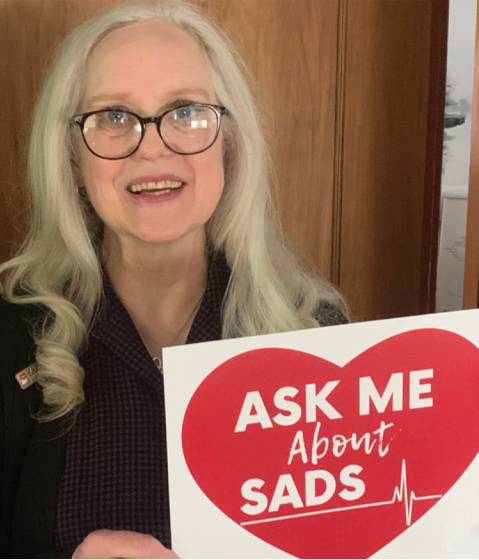
Giving Thanks to Outgoing CEO Alice Lara
During her tenure as executive director, Alice Lara transformed SADS from a small advocacy group into a globally recognized voice for patients with inherited heart rhythm conditions. She established strategic partnerships with regulatory agencies, advanced the inclusion of patient-reported outcomes in clinical research, and cultivated a multidisciplinary network of over 150 specialized providers.
“It is remarkable to see how far SADS has come, thanks to our dedicated staff, board of directors, partners, and families,” says Alice. “When I started more than 20 years ago, many medical professionals were unfamiliar with our conditions. Now, we are collaborating with the United States Food and Drug Administration (FDA) on patient insights for new medications and working with a physician referral network of over 150 expert medical providers. I am excited to see Walker and the team build on this progress, creating new opportunities and partnerships to ensure a brighter future for SADS families.”
“Alice has been instrumental in elevating SADS to international prominence—placing us at the forefront of developments in these conditions, convening top stakeholders, and ensuring patients receive the support they need to live and thrive,” says Dr Ackerman. “On behalf of the Board, we send Alice our most heartfelt thanks and congratulations on a career filled with purpose and achievement.”
Paving the Way for Critical New Treatments for Inherited Heart Rhythm Conditions
Research continues to progress rapidly in the inherited heart rhythm space, with over 6 gene therapies and small-molecule trials currently enrolling or in progress for channelopathies and cardiomyopathies.
As new therapies approach review by the FDA, the SADS Foundation is bridging a gap that will help patients, researchers and providers. Three inherited heart rhythm conditions—CPVT, BrS, and ACM—do not yet have International Classification of Diseases (ICD-10) codes.
An ICD-10 code is used to classify and record diseases, symptoms, and procedures. These codes are critical for disease tracking, reimbursement, and insurance coverage of FDA-approved therapies.
With gene therapy trials now advancing for ACM, hypertrophic cardiomyopathy (HCM), and CPVT, SADS recognizes a critical need for both patients and clinicians to understand the underlying mechanisms and clinical implications of these new interventions. Informed participation in early-phase trials requires clear, unbiased education and information about the potential risks and benefits of participating.
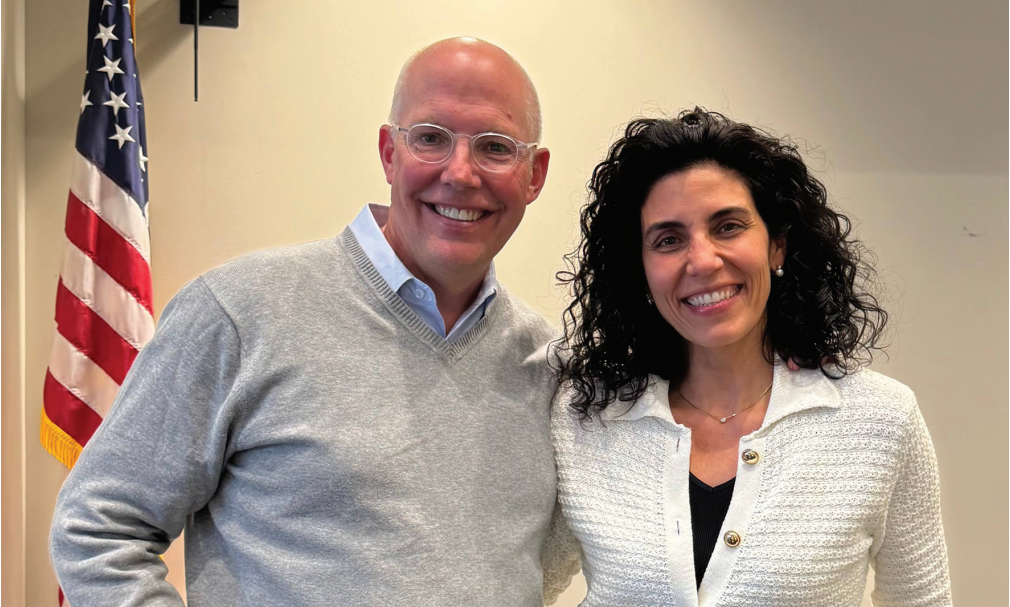
SADS has produced a series of webinars to educate patients on gene therapy from multiple angles—from the phases of clinical trials to the mechanism of gene therapy in treating (and potentially one day curing) inherited arrhythmias and cardiomyopathies. SADS has also developed a dedicated web page for patients that explains gene therapy and the clinical trial process and provides an unbiased source of information on trials.
It is critical for health care professionals to understand gene therapy, including its potential risks and benefits, to counsel patients interested in participating. SADS has partnered with scientific organizations including Heart Rhythm Society, PACES, Heart University, and the American College of Cardiology to offer gene therapy education for health care providers and research presentations on the latest advances in cutting-edge science.
SADS’ goal is to make sure the patient voice is centered in discussions about new therapies for inherited heart rhythm conditions. SADS has formed 4 patient-led steering committees, including for ACM, BrS, CPVT, and LQTS, to review research and resources for their respective conditions. These committees serve as vital stakeholders in shaping meaningful, patient-informed end points and improving trial design. Pharmaceutical companies and academic investigators alike benefit from engagement with these groups to ensure that emerging therapies align with patient needs and lived experiences.
Patient Support: Family-Centered Resources
In 2024, the SADS Foundation’s Family Support team assisted over 400 families navigating their diagnosis, including after a sudden cardiac death in the family. Services included expert clinician referrals, individualized education about genetic testing and condition management, peer-to-peer patient support, and guidance for family screening following a sudden death.
These interventions not only provide emotional support but also ensure more informed decision-making for both affected patients and at-risk relatives.
“The SADS team provides an invaluable link between clinical care and the real-world lived experience of having an inherited heart rhythm condition,” adds electrophysiologist Ronald Kanter, MD, at Nicklaus Children’s Hospital. “They ensure our patients do not fall through the cracks.”
As novel therapies emerge, the SADS Foundation remains steadfast in its commitment to bridging science and support—and ensuring that no family feels alone in their journey with an inherited heart rhythm condition.






